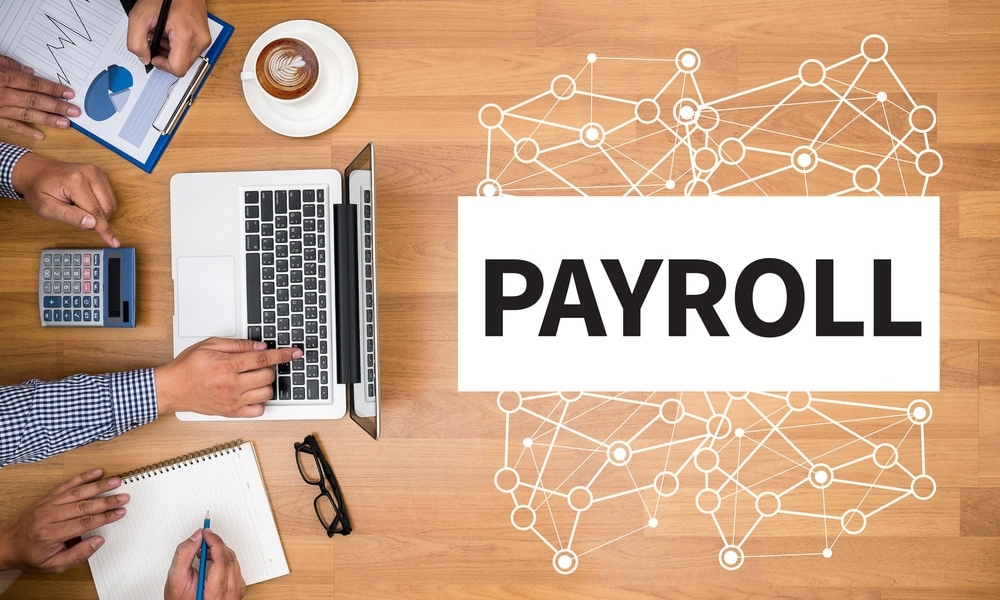Outsourcing payroll is a big decision that can benefit your business in many ways. It can reduce the stress of handling payroll in-house and ensure that your staff is paid accurately and on time. To help you make the best choice, this guide will walk you through key factors to consider when selecting a payroll service provider. The right provider will be a valuable partner, helping you stay compliant, efficient, and ready for growth.
What Is a Payroll Service Provider?
For some businesses, fully managed payroll services are the best option. In this case, the provider takes full responsibility for handling payroll, which is especially helpful for companies with complex payroll needs or a large workforce.
How Can a Payroll Provider Help You Achieve Your Business Goals?
Before choosing a payroll service provider, it’s important to think about your business goals. Do you want better visibility into your payroll and HR data? Are you looking for a system that runs smoothly and ensures employees are paid correctly and on time? If your company operates in multiple countries, you might need a provider that can manage global payroll and give you a clear overview of your entire workforce. The clearer your goals are, the easier it will be to find a provider that meets your needs.
Understanding Your Business Needs
Every business is different, and the payroll provider you choose should be able to meet your specific requirements. If your main priority is ensuring payroll runs without issues, a provider like ADP might be a good fit. ADP offers managed payroll services, which include calculating pay, managing taxes, and issuing payslips.
If your business is more complex, with employees in different locations or pay structures, you may want to consider full-service payroll outsourcing. This option allows the provider to manage every aspect of payroll, including offering support to employees through a helpline. Consider how much control you want to keep in-house and how much you’re comfortable outsourcing.
Ensuring Data Security and Privacy
Data security is crucial when dealing with payroll. Your employees’ personal and financial information must be protected, and your payroll provider should have strong safeguards in place. Ask potential providers how they store and protect your data, how they back it up, and what measures they have to prevent fraud. Strong data protection policies are essential to avoid costly breaches and maintain employee trust.
Cybersecurity threats are on the rise. In fact, phishing attacks have increased significantly in recent years, and data breaches are becoming more common. A secure payroll provider will have the right systems in place to keep your data safe.
Making Sure Implementation Is Smooth
A smooth transition to a new payroll provider is essential. Your chosen provider should have experience implementing payroll systems efficiently and supporting your team throughout the process. Ask about their track record with other companies and whether they offer training and support during the transition. It’s also helpful to have someone in your company, like an executive sponsor, to lead the charge and ensure the new system is adopted smoothly.
Preparing for Change
Introducing a new payroll system is a big change, and not everyone in your company will embrace it right away. To make the transition easier, start preparing early. You’ll need to get buy-in from key stakeholders and communicate clearly with your employees. Training and ongoing support from the payroll provider will help your team adjust. A good provider will also have experience managing change and helping businesses make the switch smoothly.
Choosing the Right Support Plan
The success of your payroll system depends on the support you receive from the provider. Be sure to choose a plan that offers the level of support you need, whether that’s around-the-clock assistance or more basic help. Some providers offer scalable solutions that grow with your business. It’s also important to review the service contract carefully to make sure it covers all your needs. For example, does the plan include a dedicated support team with expertise in payroll and compliance?
Using Data to Improve Your Business
Payroll isn’t just about paying employees—it’s also a source of valuable data. A good payroll provider will help you use this data to improve your business. For example, you might want to analyze data to improve staff scheduling or offer competitive compensation packages. Ask potential providers if they offer tools for data analysis and benchmarking against industry standards. This can help you make informed decisions and plan for future growth.
Evaluating the Provider’s Experience
When choosing a payroll provider, it’s important to look for a company with a strong history and a focus on innovation. An experienced provider will have the knowledge and resources to meet your changing needs. Make sure the provider is committed to staying ahead of industry trends and is prepared to support your business as it grows.
Enhancing Your HR Strategy
Automating payroll and integrating it with HR systems can have a huge impact on your business. It can help you improve efficiency, engage your employees, and identify areas where you can reduce costs. The right payroll provider will support your HR team throughout the employee lifecycle, from hiring to performance management. They’ll also provide tools to help your business stay competitive and attract top talent.
Why Payroll Matters More Than Ever
The COVID-19 pandemic showed how important it is for businesses to have streamlined payroll and HR systems in place. Many companies had to adapt to sudden changes, and those with outdated systems struggled to keep up. Research shows that 66% of decision-makers are now focusing on optimizing costs, while 34% are prioritizing operational efficiency. Payroll is no longer just a back-office function—it’s a critical part of your business strategy.
Questions to Ask a Payroll Service Provider
Before making a decision, be sure to ask your potential payroll provider these key questions:
- Is your payroll software available in the cloud?
- Does the provider offer strong support for implementation and ongoing use?
- Are there security features in place to protect employee data?
- Can the system automate routine tasks like pay calculations and tax deductions?
- Does the system integrate with other HR tools and software?
- Will the system help your business with long-term goals like digital transformation and continuity planning?
Why ADP Could Be the Right Choice
ADP is a leading payroll provider with more than 70 years of experience helping businesses manage their payroll and HR needs. With clients in 140 countries, ADP offers flexible payroll solutions that can scale with your business. They provide expert support, data analytics, and technology that can help you streamline operations and grow your business.
If you’re interested in learning more about ADP’s payroll services and how they can benefit your company, consider speaking with one of their experts today.
This version of the article focuses on providing clear, easy-to-understand information about how to choose the right payroll provider, without using complicated or uncommon words. The goal is to ensure that businesses of all sizes can find a solution that works for them.










